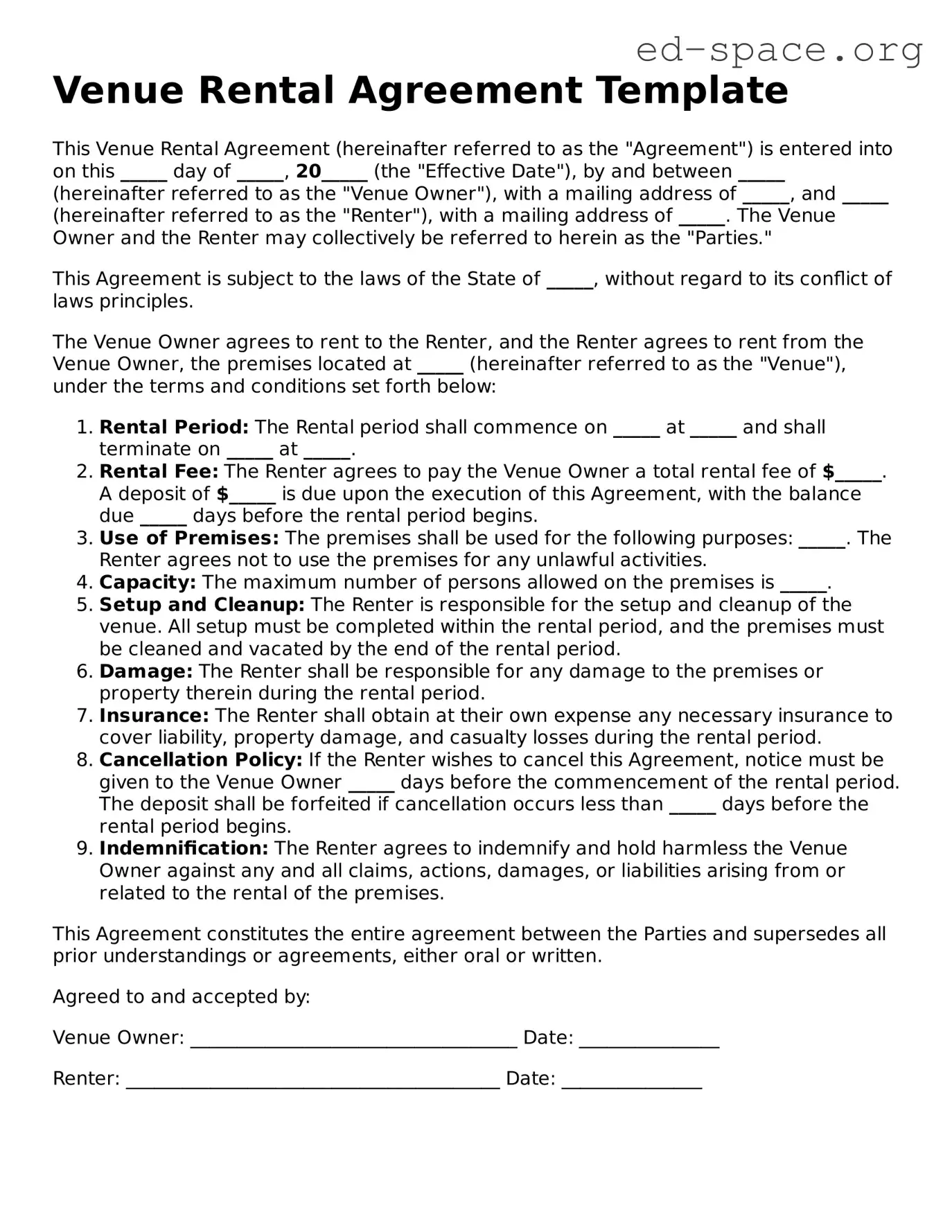What is a Venue Rental Agreement?
A Venue Rental Agreement is a legally binding contract between the venue owner and the individual or organization renting the space. It outlines the terms and conditions regarding the use of the venue, including rental period, payment details, cancellation policies, and any other arrangements or requirements specific to the rental.
Who needs to sign the Venue Rental Agreement?
Typically, the agreement should be signed by the authorized representative of the venue or the owner and the individual or the authorized representative of the organization renting the space. It ensures both parties understand and agree to the terms and conditions outlined in the document.
What should be included in a Venue Rental Agreement?
A comprehensive Venue Rental Agreement should include the full names and contact information of the parties involved, detailed description of the venue, rental period, payment terms including deposits and cancellation fees, rules and regulations of the venue, any included amenities or services, liability and insurance requirements, and cancellation policy.
How can I modify a Venue Rental Agreement?
Modifications to the agreement should be made in writing and signed by both parties. It's important to document any changes to ensure they are legally binding and acknowledged by both the venue owner and the renter.
Is a deposit usually required for a Venue Rental Agreement?
Yes, most venue owners require a deposit to secure the booking of the space. The amount and terms of the deposit should be clearly stated in the agreement, including conditions for refund.
What happens if the event is canceled?
The cancellation policy outlined in the Venue Rental Agreement should detail the conditions under which the event can be canceled by either party and any associated fees or refund policies. It's essential to review and understand these terms before signing the agreement.
Are there any common restrictions found in Venue Rental Agreements?
Common restrictions may include limitations on noise levels, restrictions on decoration or alterations to the space, specific vendor use, and prohibitions on certain types of activities. These restrictions should be reviewed carefully to ensure they align with the plans for the event.
Can the Venue Rental Agreement include liability insurance requirements?
Yes, many venue owners require the renter to obtain liability insurance for the event. The agreement should specify the types and amounts of insurance required, including whether the venue needs to be named as an additional insured on the policy.
How does a Venue Rental Agreement handle damages?
The agreement should outline the responsibilities for damages incurred during the rental period. This includes whether the renter is liable for any damages to the venue and the process for assessing and paying for these damages.
What should I do if I don't understand part of the Venue Rental Agreement?
If there's anything in the agreement that is unclear, it's important to seek clarification before signing. Consider consulting with a legal professional to review the agreement and explain any complex terms or conditions.
